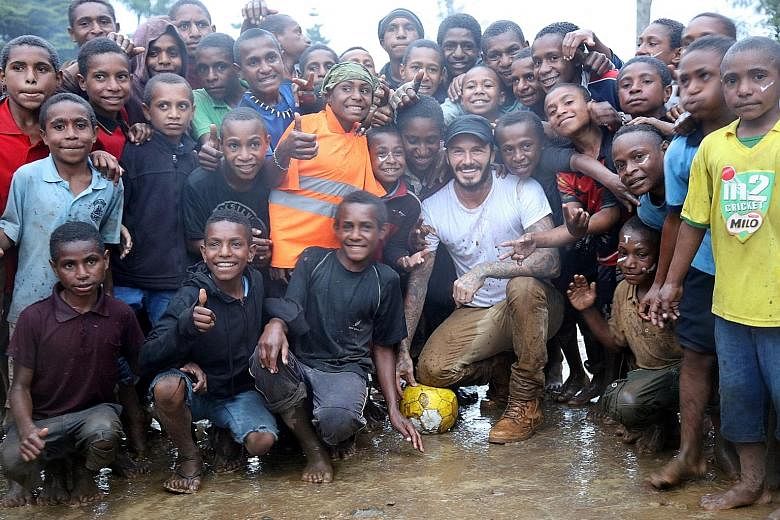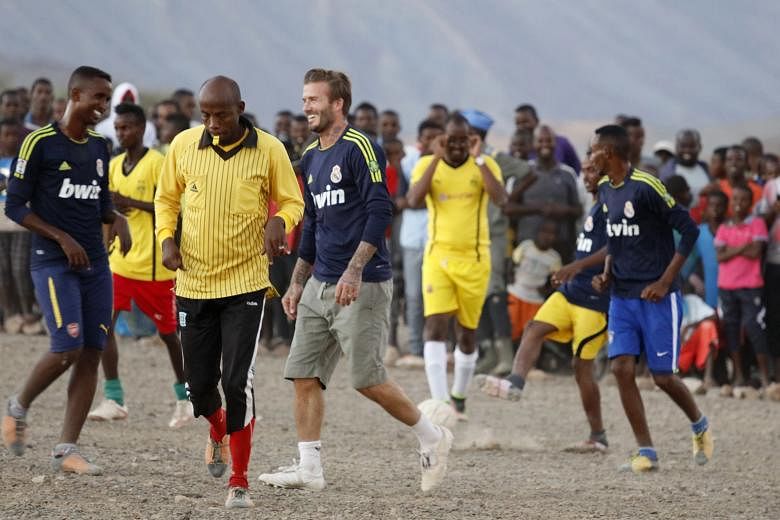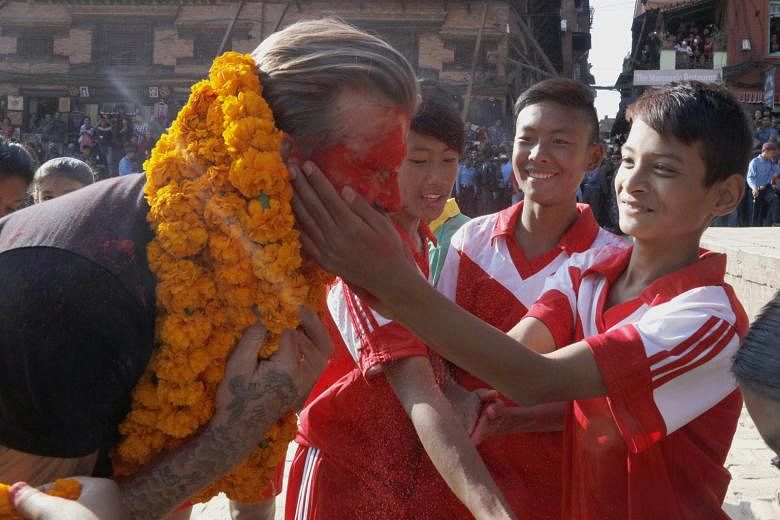Last November, former football star David Beckham hosted a Unicef (United Nations Children's Fund) fund-raiser at Old Trafford - home turf of his former club Manchester United - amid hundreds of thousands of screaming fans.
What they did not know was that he had just spent 13 days travelling across seven continents and playing seven football games on seven different surfaces - the rainforests of Papua New Guinea, a cobblestoned square in Nepal, the gravel of a refugee camp in the African nation of Djibouti, the raw concrete paths of Buenos Aires, a rooftop astroturf in Miami and the slippery ice of Antarctica.
The English footballer's adventure would end with a final game on the green grass of home and where he first made his name.
The experience, which has been made into a 90-minute documentary, David Beckham: For The Love Of The Game, airs on BBC Earth tonight and is an ode to how sport can unite and inspire communities, even as they deal with severe hardships or geographical devastation.
But for Beckham, who last year marked 10 years as a Unicef Goodwill Ambassador, this was a passion project that went beyond just raising funds for charity.
He says in an exclusive telephone interview with The Straits Times: "I wanted to use the lens of football to shine a light on the wonderful work that Unicef and other organisations are doing in some of the most remote and devastated regions around the world.
"I've always known football to be a sport that connects people and I wanted to experience that personally - across countries, cultures and languages."
The documentary is not an explicit call for donations, but it does not gloss over geopolitical problems.
In between learning how to make a soccer ball out of banana leaves in Papua New Guinea and setting a world record for playing the first official football game in Antarctica, he meets and talks to the people in every community, in turn highlighting issues such as the refugee crisis, malnutrition, poverty and natural disasters.
The 40-year-old says he was involved every step of the way, including deciding which locations to visit and planning the logistics, but admits that he was surprised the team managed to pull off the seemingly overly ambitious project.
"Time was a huge factor because we had only about four months to get everything set up. I wanted to go to locations where Unicef and other charities are heavily involved, but that meant none of our flights was less than eight hours. In fact, we travelled 30 hours straight to Antarctica," he recalls. "It was an uphill battle with logistics, as well as exhaustion and jetlag."
These challenges are shown in the documentary, including a parti- cularly tricky moment when the rickety Land Rover he is driving in Djibouti breaks down enroute to Ali Addeh refugee camp, causing him to almost miss his match there.
But for Beckham, who retired from football in 2013, it is evident that the overwhelming reception at every stop made the complicated itinerary worthwhile. In Nepal, for example, more than 2,000 fans waited overnight outside the hotel, hoping to get a glimpse of him.
And in the remote highlands of Papua New Guinea, the whole village came decked out in traditional dress to meet him and the film crew.
For the father of four, who is married to former Spice Girl and fashion designer Victoria Beckham, it was an eye-opening and inspiring journey.
He says: "Nothing is more humbling than playing against refugees from Somalia, who can put you through your paces, or walking through Papua New Guinea's rainforests and having locals recalling your assists from certain matches.
"It's why I hope that the documentary not only shows people the power and unity of sport, but also inspires them to get involved to help these communities. That would be the best takeaway for me."
• David Beckham: For The Love Of The Game airs tonight at 9.50pm on BBC Earth (StarHub Channel 407).




